Obesity is not a disease. It is a lifestyle affliction. It is a symptom. It is a side-effect of poor habits and it can be reversed.
― Nancy S. Mure
Do not fear it [influenza]. Remember, fear is often worse than the disease. Fear but helps bring it about. The boards of health in their death reports, through the daily press, have been frightening the public into this “new disease.” Many a delicate person begins to imagine, “I've got it!” and thus weakens his system, poisons his blood by not digesting his food, and paves the way for almost any disease.[1]
—Simon Louis Katzoff, PhD, MD, 1921
When you walk into any Walmart or big-box store, it becomes immediately clear that many Americans are struggling with their health. Obesity is widespread. A surprising number of people look pale, fatigued, and dependent on motorized carts just to navigate the aisles. These aren’t isolated cases—they’re signs of a larger crisis.
Over the past 50 years, obesity rates in the United States have more than tripled, and the numbers continue to climb. Since the late 1970s, this trend has touched nearly every demographic. It’s deeply concerning, not only because carrying excess weight is tied to serious health conditions like diabetes, heart disease, and cancer, but also because it places an enormous strain on our healthcare system.
Nearly 70% of adults in the US are either overweight or obese. According to nationwide surveys the National Institutes of Health has conducted since the early 1960s, US obesity rates have tripled over the last 60 years. Severe obesity, also known as morbid obesity, has risen tenfold.[2]
All the trends in weight are going in the wrong direction, as you can see in these charts.[3]
This crisis didn’t appear overnight. It’s the result of sweeping changes in how we live, move, eat, and work. Technological advances—cars, smartphones, remote jobs—have made our lives more convenient, but far less active. Many neighborhoods lack sidewalks or feel unsafe, discouraging outdoor activity. Meanwhile, fresh, wholesome food is often harder to find than ultra-processed, high-calorie snacks.
Our food system has been reshaped by mass production and marketing. Highly processed items filled with sugar, salt, and artificial ingredients dominate the shelves, while fast food chains promise quick meals at low prices. It’s no surprise that many people fall into the trap of consuming food that fills the belly but starves the body of real nourishment. McDonald’s, Dunkin Donuts, Doritos, Coca-Cola, and many others aren’t just convenience foods, they are the pivotal reasons why we are in this disaster.
The impact is everywhere. Too many people rarely exercise. For some, the goal at the grocery store is to snag the closest parking spot to minimize walking. With automatic trunk doors, even lifting a car trunk becomes an easily bypassed chore. Add to that our growing addiction to screens—whether it's games, streaming, or scrolling through endless feeds—and our lifestyles have become alarmingly sedentary.
As rates of obesity and chronic illness rise, so do medical costs. But instead of addressing the root causes—poor diets, lack of sunlight, vitamin and mineral deficiencies—our healthcare system often offers pharmaceutical band-aids. Medications, weight-loss surgeries, and drugs like Ozempic are increasingly common, but they don’t create true health. In many cases, they simply mask deeper lifestyle problems and cause further health problems.
Industrial agriculture now produces food in staggering quantities, but much of it is stripped of essential nutrients. Our plates are filled with “food-like” products—engineered to taste good and last long, but devoid of the minerals and compounds our bodies desperately need. It’s food as entertainment, or “foodtainment”—designed to trigger cravings, not health.
Profit-driven food manufacturing has quietly replaced real ingredients with artificial ones. GRAS (Generally Recognized as Safe) chemicals, many of which were never thoroughly studied, are now standard in everything from snacks to beverages. Over time, these substances take a toll on our health, contributing to inflammation, hormonal disruption, and chronic disease.
Meanwhile, a silent pandemic of vitamin D deficiency spreads, fueled by our modern indoor lifestyles and sunscreen-heavy habits that limit natural sun exposure. Add to that rising levels of microplastics, pesticide residues, and industrial toxins—now found even in newborns—and it’s clear we’re living in an increasingly toxic world.
And then there’s the stress. We’re bombarded daily by fear, division, and uncertainty—pushed relentlessly by media, influencers, and political agendas. This constant tension wears down our immune systems, disrupts sleep, and saps our energy. Many people are exhausted, burned out, and too overwhelmed to question why they feel so unwell.
The result? A society caught in a downward spiral—overfed but undernourished, constantly connected yet increasingly isolated, technologically advanced but biologically depleted. Without genuine health, no nation—let alone the world—can truly survive, much less thrive. A sick population cannot build a strong economy, defend its freedoms, or nurture the next generation. And yet, in the United States and across much of the Western world, nearly 20% of our wealth is poured into a healthcare system that too often manages disease rather than promotes wellness.
When so much of our resources are spent treating preventable conditions instead of fostering true vitality, we set ourselves on a path toward exhaustion—financially, physically, and socially. If this trend continues unchecked, the decline of our nations is not just possible—it’s inevitable.
If we want to turn this around, we must step back and reevaluate the systems that shape our choices. It starts with reclaiming our health—one meal, one walk, one good night’s sleep at a time. Real wellness isn’t found in a pill, a drive-thru, or an app. It’s found in fresh air, clean food, strong community, and simple, consistent habits that honor the body’s natural rhythms.
There’s a growing idea out there—a movement, even—to make America healthy again. But here’s the truth: it won’t come from the government, a politician, or some sweeping new policy. Real change starts with us—as individuals, as families, as communities.
It means choosing real, whole, organic foods over ultra-processed convenience meals. It means moving our bodies regularly, getting outside, and reconnecting with the natural rhythms of life. It means stepping away from a medical system that often treats symptoms rather than root causes, and instead focusing on prevention, nourishment, and self-care.
It also means tuning out the constant stream of fear-driven headlines and anxiety-fueled noise—the “fear porn” that keeps us stressed, distracted, and dependent. When we hand over responsibility for our well-being to someone else—waiting for a savior or a system to fix us—we give away our power. Health, happiness, and true prosperity begin when we take ownership of our lives. It’s not always easy, but it’s always worth it.
[1] Simon Louis Katzoff, PhD, MD, Timely Truths on Human Health, 1921, p. 102.
[2] US obesity rates have tripled over the last 60 years, USA Facts, https://usafacts.org/articles/obesity-rate-nearly-triples-united-states-over-last-50-years
[3] Ashley W. Kranjac and Dinko Kranjac, "Explaining adult obesity, severe obesity, and BMI: Five decades of change," Heliyon, Volume 9, Issue 5, May 2023, https://doi.org/10.1016/j.heliyon.2023.e16210





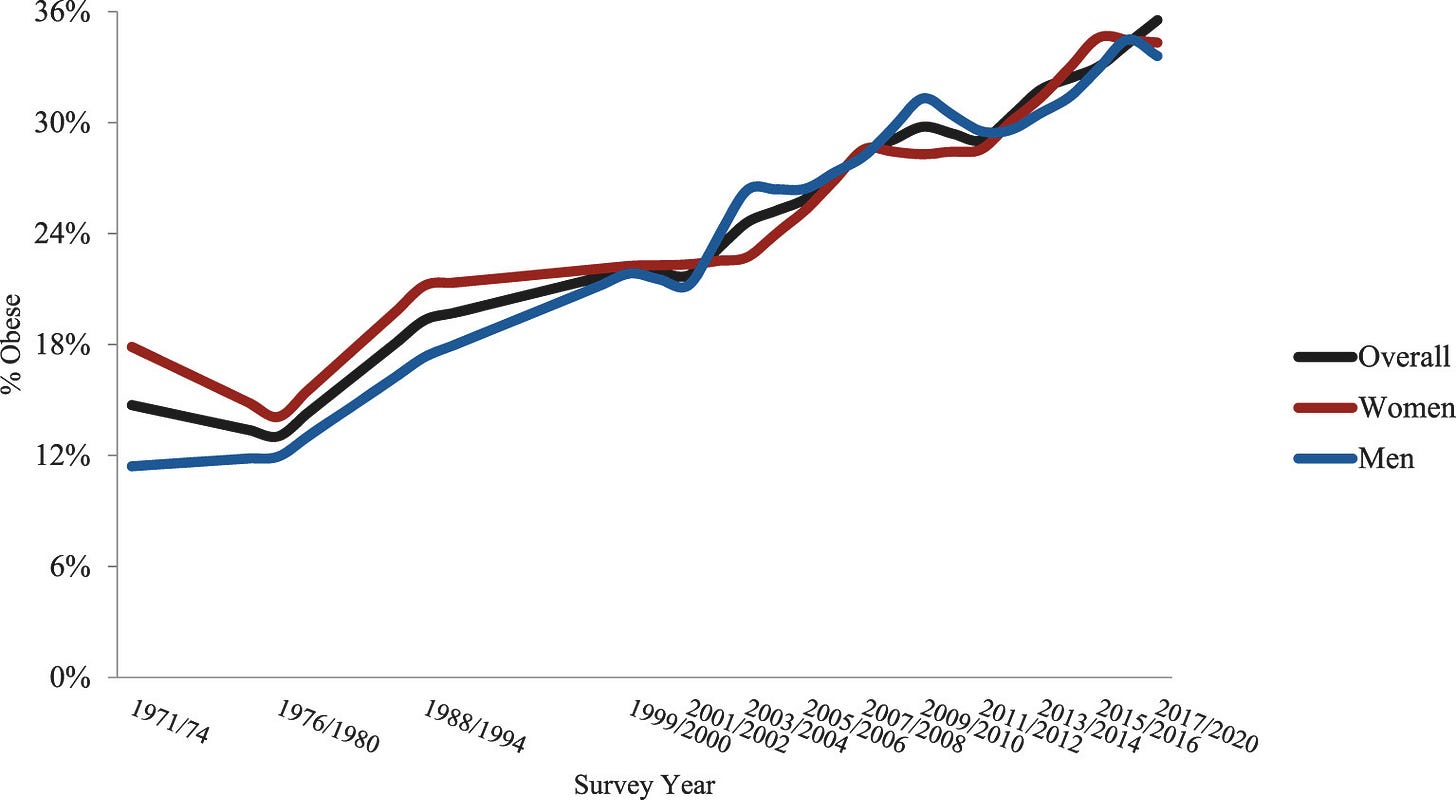
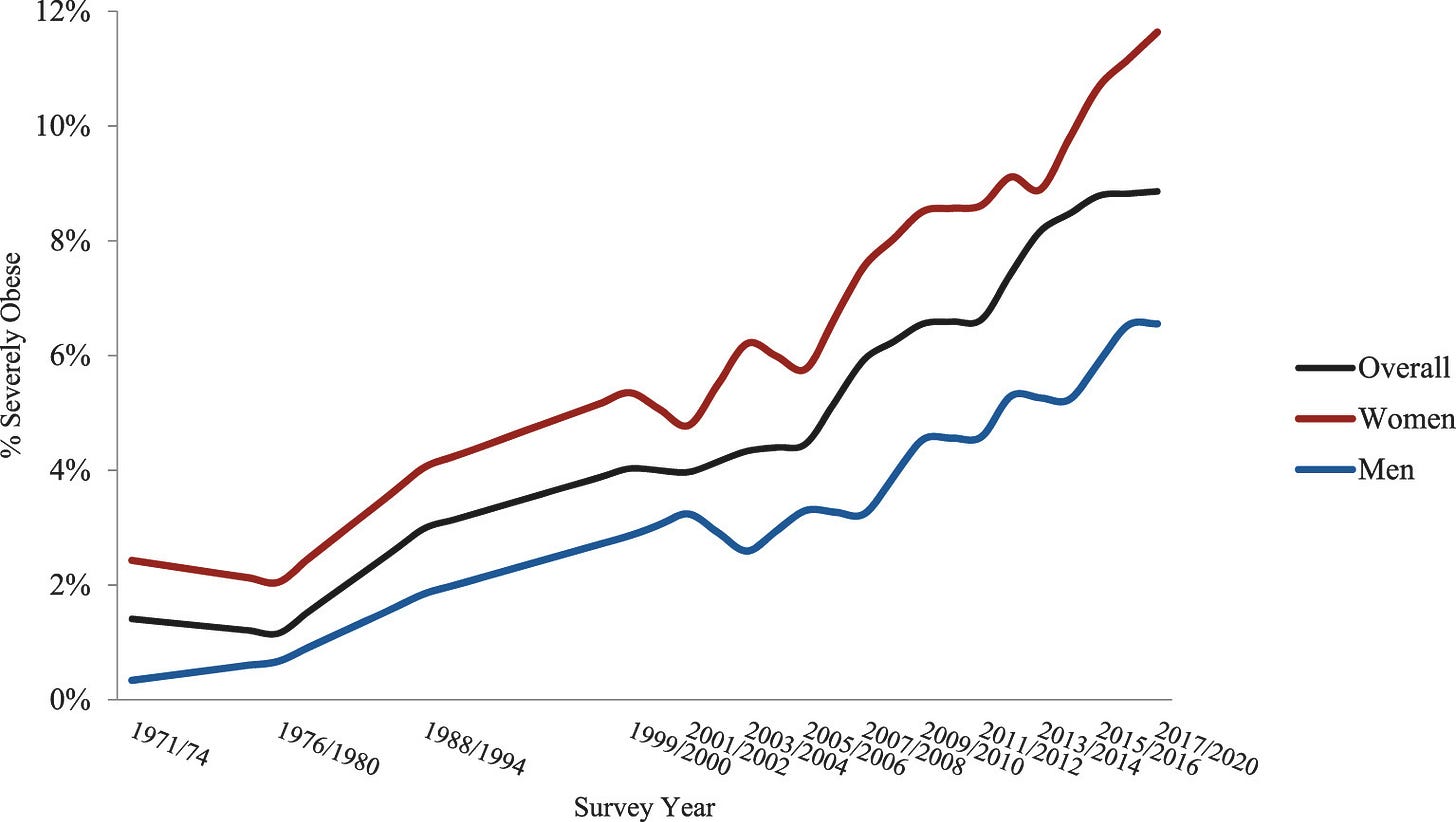
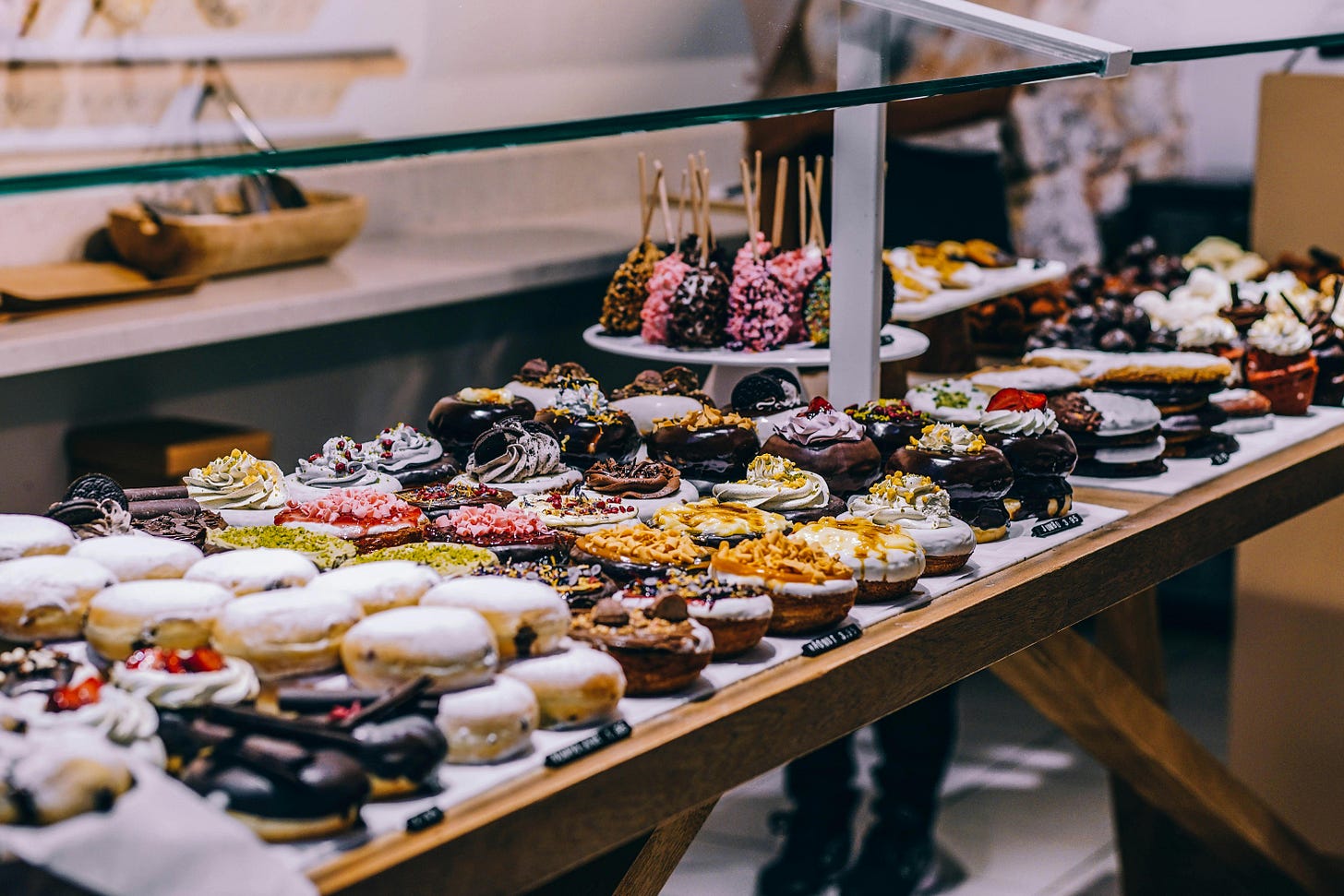
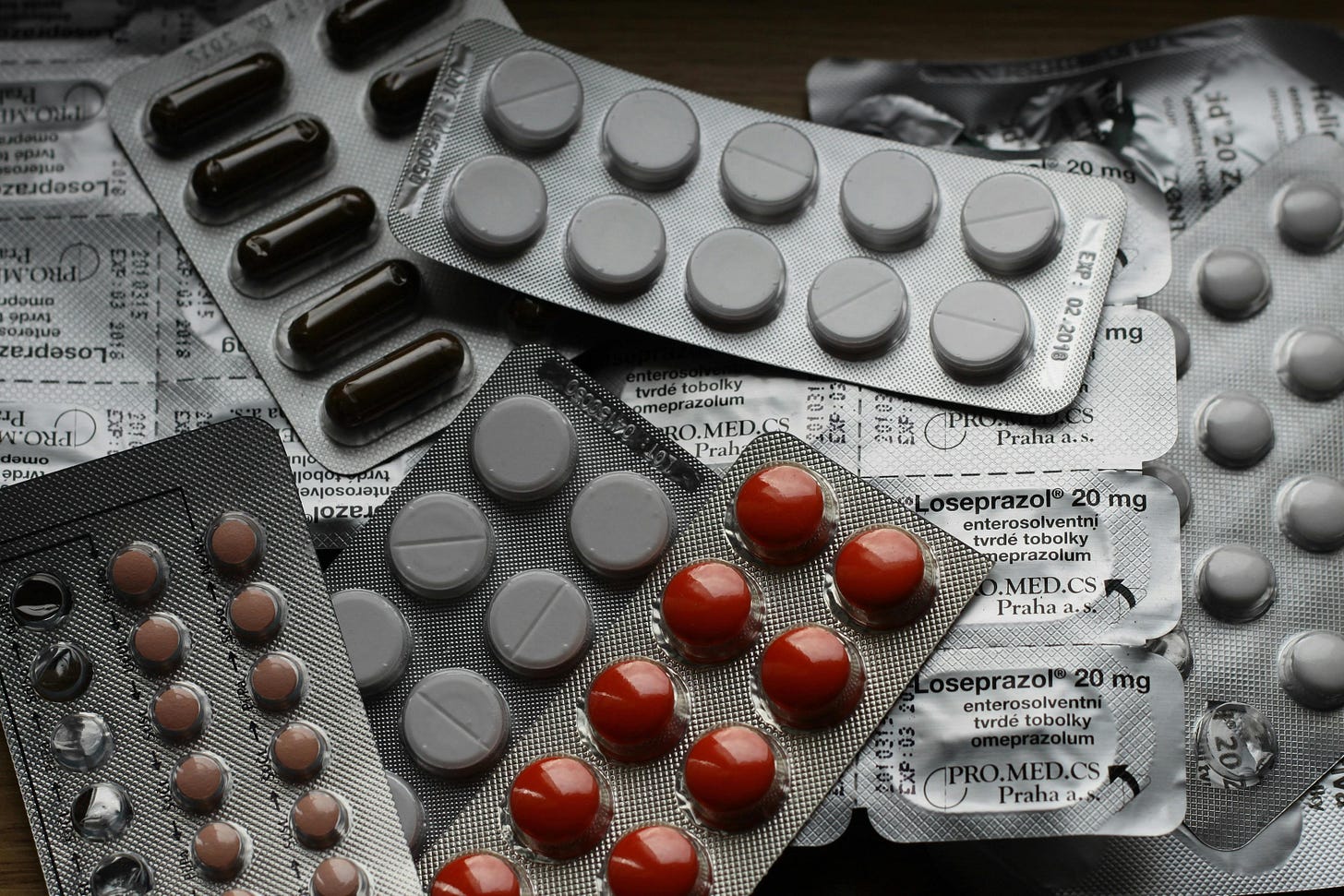


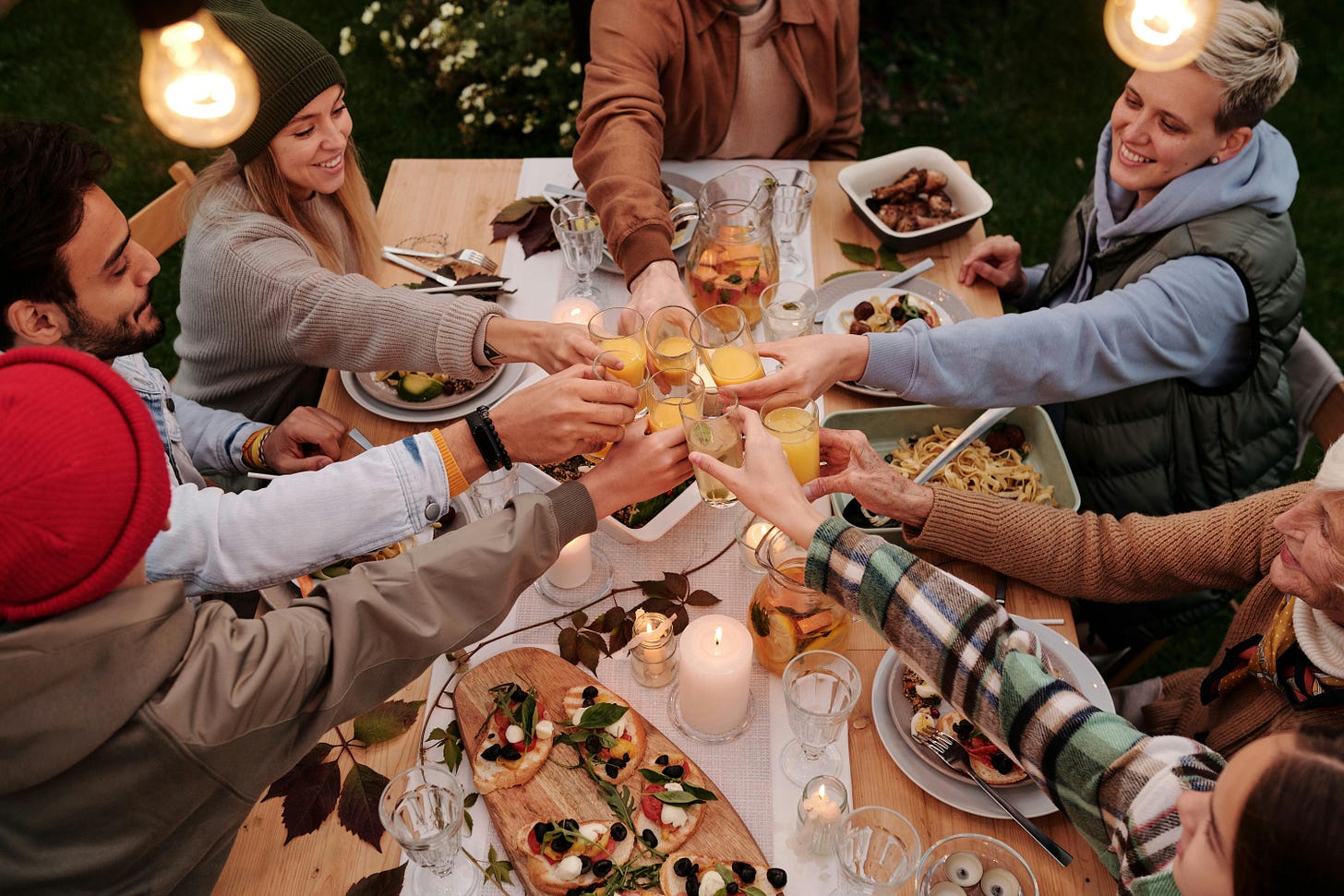
Brilliant piece, thank you. I would like to add that we’re now into the 6th generation of predominantly formula fed babies with no real effort to promote and support breastfeeding women. It’s well documented that babies fed on formula are more likely to become obese in later life, not helped of course by the many issues you’ve so rightly highlighted here.
Thank you. I am honestly getting to the point where I will only read posts such as your’s. I don’t carry a cell phone, try to work outdoors as much as possible, avoid processed foods and have made an attempt to stay off the Internet in favor of my own Innernet but I did not always do any of those things. I recently went to the mountains with several friends and one woman was over 400 pounds. We ended up having to find an oxygen condenser and mask for her. I was worried the entire time that she’d have a stroke or heart attack during a snow storm. It was unnerving and frankly sad. She’s big into not “body shaming” but I am big into not dying at only 36 years old from something completely preventable.